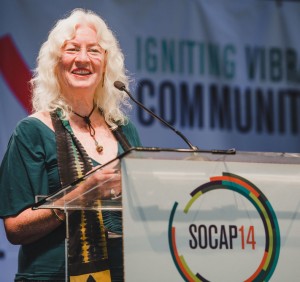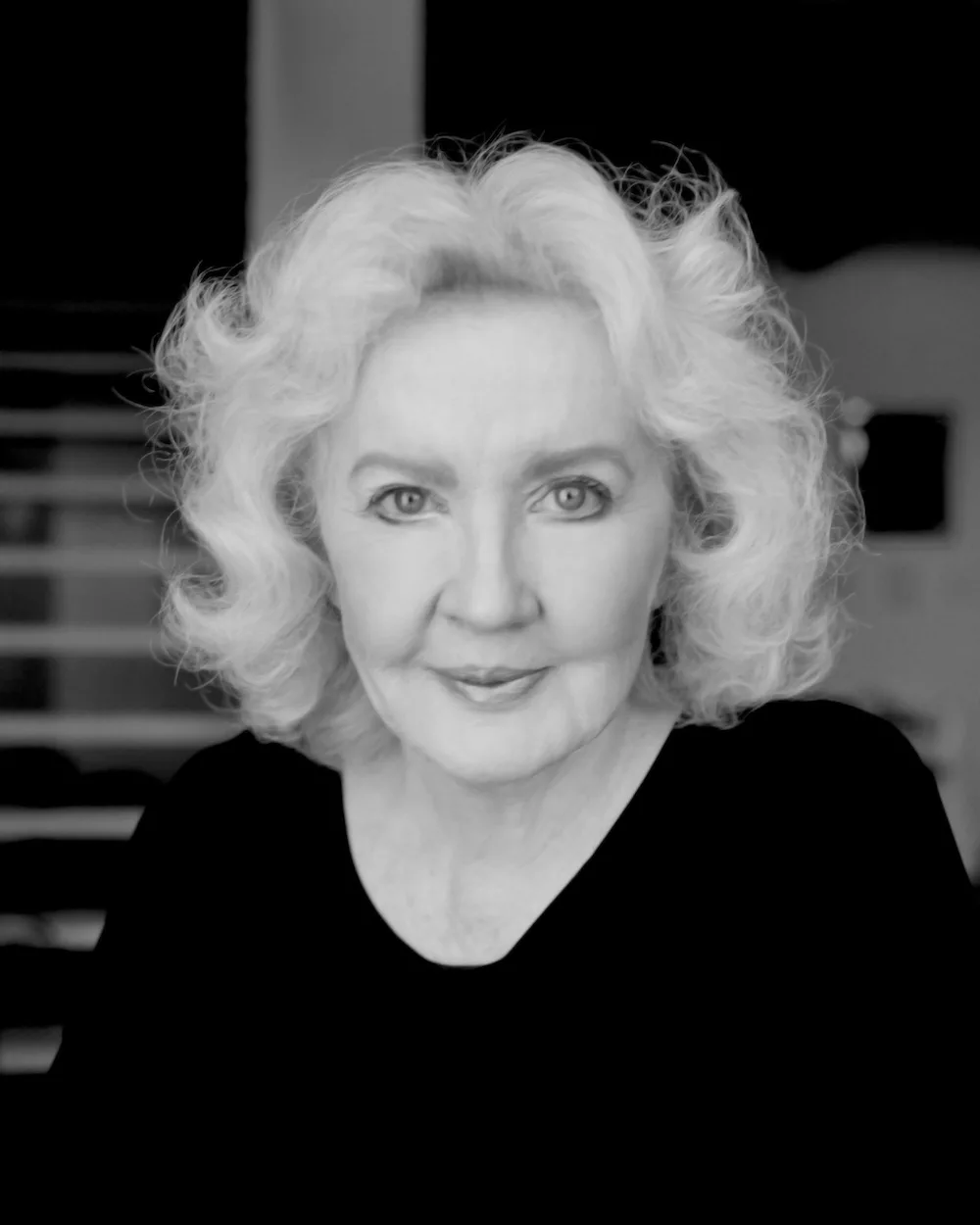 Many members in the SOCAP community are working inside traditional capital markets to create change, whereas others are pursuing disruptive systems. Local investing is gaining momentum as an alternative to the aggressive profit-maximization driven through the stock market, and as a catalyst for tangible social and environmental impact. We recently asked BALLE Co-founder and living local economies thought-leader Judy Wicks to share with us a few of her own thoughts on the localist movement.
Many members in the SOCAP community are working inside traditional capital markets to create change, whereas others are pursuing disruptive systems. Local investing is gaining momentum as an alternative to the aggressive profit-maximization driven through the stock market, and as a catalyst for tangible social and environmental impact. We recently asked BALLE Co-founder and living local economies thought-leader Judy Wicks to share with us a few of her own thoughts on the localist movement.
We spoke to Judy after she delivered the keynote address at an event for entrepreneurs from the nature-based business accelerator program Accelerating Appalachia.
SOCAP: What is inspiring you in your work right now?
Judy Wicks: What’s inspiring me are the young entrepreneurs that are working on new concepts that are green and locally based. I feel like our hope for the future really lies in these young entrepreneurs rebuilding the economy. We need to help them and it was great to hear from so many of them at tonight’s event.
What infrastructure or resources are missing that are necessary to catalyze the social entrepreneurial movement at the local level?
I think the main thing is just awareness on the part of the general public and the consumer to be mindful of the power of the dollar. And how they spend their dollars. Investing, buying, (and) selling has a lot of power. We’re actually creating the world we live in by how we spend our money. People are very much oblivious to that. Even when they have fair trade options available. People don’t pay attention to whether a chocolate is fair trade or not.
A lot of people don’t pay attention to whether something is local. People aren’t being mindful. I think that’s beginning to change and think that’s also the holdback because we’re not going to get anywhere until people are mindful of how they spend their money.
So it’s not just the entrepreneurs that have to become more mindful in how they run their businesses but consumers have to be more mindful in how they shop. By not shopping in a wasteful way and buying things we don’t need and buying trivia. But also really understanding the power of the dollar. That we can build a local economy if we all support it.
And of course investment is a big thing. Getting people to take money out of the stock market, and really money in the stock market is supporting an economy that’s disastrous. It’s causing climate change and great inequality, rising inequality, yet people continue to invest in the stock market. A suicidal economy. So I think that’s the most important thing is just to get people to wake up and realize that we can build a new economy, but it takes everybody.
Where are the most impactful places an investor can invest at the local level?
The most important thing is to build the capacity to produce basic needs regionally; food, shelter, clothing, and renewable energy. And those are the most important areas to invest in. Accelerating Appalachia is a great example of a program that provides services to regional “basic needs businesses” in food, farming, forest products, fiber, and fuel. They provide a vetted pipeline of investment-ready nature-based businesses to help investors move their investments from Wall Street to Main Street. When building a sustainable food systems, we need to help farmers but also the local food enterprises that process food, so that ultimately, when we walk into a grocery store, it’s not just the fresh produce that is local but also the products in the middle aisles come from small regional producers who are responsible to the environment and to their community.
Clothing; one of the most wasteful and gradually destructive industries is clothing and all the dyes and stuff is very polluting. So, we need investment in sustainable fashion and getting the textile industry started up again in our communities. There’s hemp. We need to legalize hemp and we need to invest in that – Kentucky has legalized hemp and ACAP has connected KY hemp growers to regional food and fiber producers. Eric Henry started up Dirt to Shirt here in North Carolina, because he realized that the t-shirts he was buying the cotton was not from North Carolina, yet North Carolina is a cotton state. So that’s where investment is needed. How can we build our local supply chains so that we have cotton from North Carolina?
The food shed, the fiber shed, renewable energy sources, renewable energy, wind turbines, solar panels, electric cars, we need charging stations. All those things, green building. The whole green building industry, building materials, can we produce more building materials locally through sustainable forestry, through sustainable quarries, brick making. So those areas of basic needs are the most important ones to invest in so that our regions become self-reliant and have food security, energy security, water security and so on. It’s great to see programs like Accelerating Appalachia growing support for those basic needs businesses and investments.
Judy Wicks is a leader in the local-living-economies movement and the Co-founder and Board Chair Emeritus of BALLE. As the Founder of Philadelphia’s White Dog Café, Judy pioneered new socially and environmentally responsible business practices that have inspired entrepreneurs worldwide. In 2013, She published her memoir and a manifesto for economic change at the local level, Good Morning, Beautiful Business: The Unexpected Journey of an Activist Entrepreneur and Local-Economy Pioneer. Judy first appeared at the Social Capital Markets Conference in 2014. Watch Judy Wicks’ speech at SOCAP14: Loving Local: Place, Economy, and Community.
BALLE is a SOCAP Network Partner that will be featured at SOCAP15 October 6-9th.


